
Close

Starting in 1963 and in the years until 1978, Imam Moussa Sadr founded numerous centers and institutes and conducted many activities. The Imam Sadr Foundation represents an incarnation of only some of the Imam’s ideas. He started his works in the city of Tyr and its suburbs. Supporting and helping the indigenous population, his work included literacy campaigns, building institutions, activating the role of women and empowering them by courses in sewing, embroidery, and domestic education and holding emergency and training sessions.
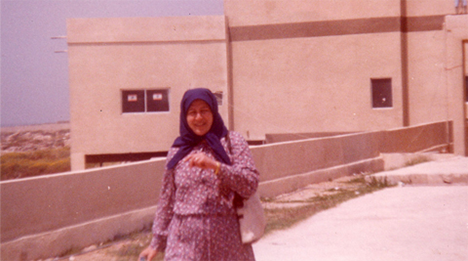
Launch of the nucleus of the Foundation: Establishment of “Beit El-Fatat” in Tyr by Imam Moussa Sadr.
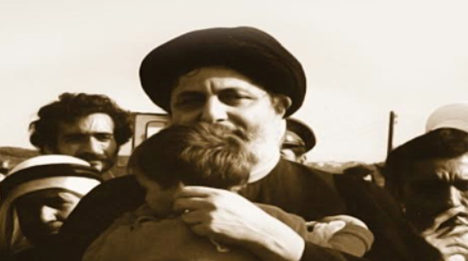
Philanthropic initiatives including literacy campaigns, containment of beggary.
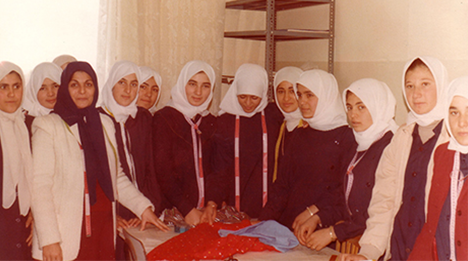
Development perspective is getting clearer; enhancing the role of women and empowering them through education and a series of skills such embroidering, sewing, and handcraft; establishment of Al-Huda School including a kindergarten , and a technical nursing school.
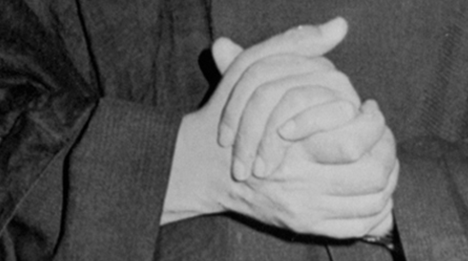
Loss of contact with Imam Sadr and his two companions during their visit to Libya.
Displacement, struggle to survive amidst conflicts and civil wars; the darkest periods in contemporary South Lebanon history: the late 1970s to mid 1980s saw the ravages of war like never before. As the ferocity of Israeli attacks increased along the border regions, thousands upon thousands of citizens fled to safety in cities like Tyr and Beirut. Absorbing this massive displacement caused obvious strain on local services and infrastructure, including the hosting communities. The period also saw increased strife between local sectarian militias and Palestinian factions, who likewise sought refuge in coastal cities and villages. During this time, Lebanon suffered greatly from repeated Israeli offensives. The most serious incursion occurred during the 1982 invasion in which the war was brought into the very heart of Beirut.
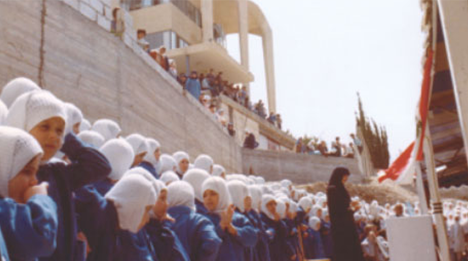
Despite these harrowing times, the work inspired by Imam Sadr continued to bring some light of hope. In an effort to reach out to girls who had become orphaned, as well as those who were living in vulnerable conditions as a result of unrelenting civil war, the Foundation launched in 1981 an Elementary School through the Rihab al-Zahra orphanage.
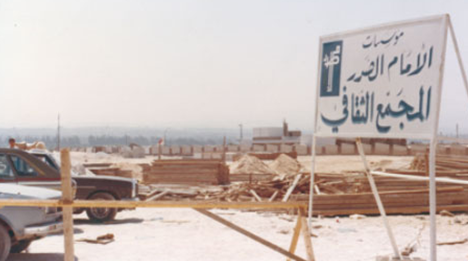
By the beginning of 1985, and right after the withdrawal of the Israeli military forces from Tyr , the benevolent guardianship and aiding activities embodied in the name of “Imam Sadr Foundation” by legal notice number 19/A.D. (1984), and prepared to set the corner stone of the cultural compound on the beach of city . By leasing a 30,000 square meter plot of land on the southern coastal shore, the Imam Sadr Foundation scored rapid expansion in the next two decadves.
Expansion and diversification of ISF activities within the cultural compound in Tyr, and in many rural localities:
elementary school, kindergarten, school for special needs, 8 socio-medical centers, center for researches and studies, vocational training programs for women; and few income generating projects.

The Greenhouse was established: Developed in 1992 as an agricultural training space for girls, the Green House offers instruction in how to properly care for a garden, as well as professional skills in the art of flower and plant arrangement.
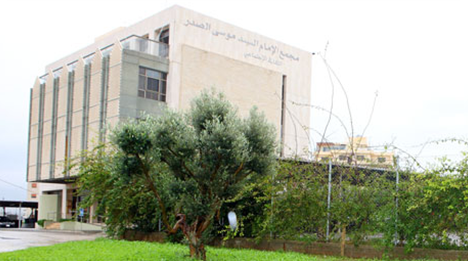
The Imam Moussa Sadr Center for Research and Studies was established in August 1995. The Center exists to preserve Imam Sadr’s methodology and to disseminate his ideas to a wider audience of scholars. Among its main activities, the Center continues to collect and publish Imam Sadr’s intellectual output, participate in inter-religious dialogue, and organize symposiums throughout the region such as the annual Common Terms conferences.
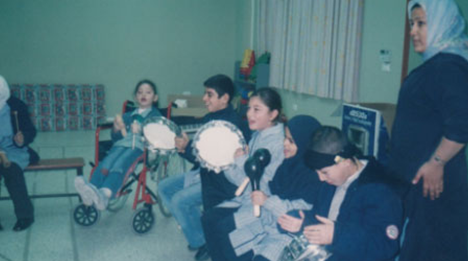
The Greenhouse was established: Developed in 1992 as an agricultural training space for girls, the Green House offers instruction in how to properly care for a garden, as well as professional skills in the art of flower and plant arrangement.

Intensive Vocational Training (IVT) programs begin: As part of a continued objective to socially and economically empower women, in 1998 The Foundation began several Intensive Vocational Training (IVT) programs. Through an intensive nine-month format, IVT offers professional training in hospitality, gardening and flower arrangement, secretarial skills, child care assistance, hairdressing and cosmetics.

As an income Generating Unit, The Milk Factory is opened. In an effort to merge the Foundation’s interests to develop rural communities and generate income for local farmers, in 2000 the Food Production Unit created a program called The Milk Factory. Through the purchase of their surplus raw milk, the program has succeeded in producing a variety of dairy products marketed throughout the region. The children of the school also benefitted from the Factory as they were given access to nutrient-fresh milk instead of powdered milk.
Towards the blue ocean, many initiatives mark this road: Specific module to qualify social workers, advanced techniques to rehabilitate students with special needs; pioneering curriculum to qualify mental health workers; integration of mental health service within primary health settings; care and rehabilitation center for spinal cord injuries. On the eve of the liberation in 2000, The Lebanese areas were opened unto one another. This breakthrough had a considerable impact on the foundation. It embarked on a path of self-discovery and definition of its future roles. It sought to institutionalize administrative development and to attract competent individuals. The foundation’s activities recorded a quantum leap in terms of geographic reach and number of beneficiaries, as well as in creating services and development initiatives built on the foundation’s body of experience in the area of welfare and charitable work. As for the organizational structure, the foundation put together a comprehensive, multi-disciplinary team where women play a crucial role in planning, administration, and implementation. The foundation staff worked hard to deliver welfare, healthcare, and educational services, as well as training and capacity building, with special focus on women’s issues and the concerns of other vulnerable and at-risk groups. In order to implement its programs, the foundation established a number of institutes and centers across the South and in the southern suburbs of Beirut.

Mobile Medical Clinic program in villages of South Lebanon begins…

The Foundation’s Al-Afaq Development Institute establishes The Social Work Branch.
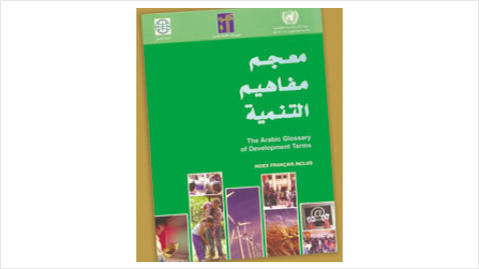
Filling a gap in Arabic development vernacular.

The war, again! A setback in our path to move forward 2006 war generated physical, organizational, and human losses that we would be hard-pressed to measure accurately. It was only natural that the entire staff and the majority of the student body and their parents would be affected by those circumstances and that these would have consequences on the performance and resources of the foundation in the short and medium terms. During the war, normal operations were almost entirely halted. The only two centers that continued to provide services were located in Anquoun and Kafarhatta, relatively far removed from the shelling sites, not to mention the initiatives of a few members and employees who remained in Tyre and strove to support their municipality by delivering medicines for chronic and other diseases. In addition to the damages sustained by many foundation facilities in Beirut and the South, the war disrupted the agreements signed with government and international bodies. Timeframes and the nature of deliveries were reconsidered in light of the changes in the priorities of the targeted populations. Moreover, the social and living conditions of the staff were also under pressure as many lost their lives or were forced to leave to deal with the loss of family members, their houses, and property. -500 consultations took place in any given month -Summer camp for 330 war-affected children -Resuming educational support
Empowering women to be able to assume national obligations and increase the ceiling of their potentials compel us to make the doors wide open for them. Hence, it has become incumbent to keep on developing the different divisions we are now fostering in the field of human sciences, medical services and administrative development.

In the nursing school, we have actually started since 2010 with the graduates who, after earning their vocational training diplomas, enrolled in mental health training courses, thanks to Norwegian Aid Committee (NORWAC).

Expansion in vocational opportunities for women in 2011, new section of photography launched thanks to the support of the Humanitarian Foundation of the Prince Waleed Bin Talal.
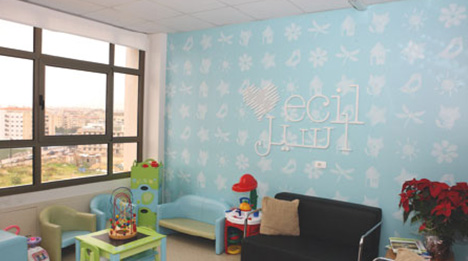
The Early Childhood Intervention Center (ECIL) inaugurated in 2011, now the accredited training center for Saint Joseph’s University and the Lebanese University, and also the subject of serious deliberation with the American University of Beirut and its professors. Furthermore, we plan to equip this division with a specialized institute for health activities such as physical, speech, hearing and other types of therapy.

Final Ceremony, Beirut, UNESCO, October 31st 2013

In June 2014, we have launched a new specialization: the treatment of complications resulting from damages to the spinal cord. It is a joint venture with NORWAC.

“Papyrus” is, undoubtedly, a strategic project for sustainable development. It aims at spreading environmental culture among students and parents and sparkling a positive impact on society and health. The concept is to “re-use waste paper and convert it into eco-friendly handicraft”, to build capacity and stimulate innovation. For more info visit: https://imamsadrfoundation.org/projects/papyrus/

Rozana, Handwoven Carpet and Silversmith Workshop
(A Pilot Initiative by Imam Sadr Foundation)
On January 20th, 1975, Imam Mousa Sadr said: “We need strong women who can stand up firmly; this impels comprehensive training and educational programs”.